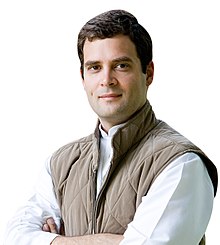
by Nilofar Suhrawardy 5 August 2021
Congress leader Rahul Gandhi and several opposition leaders appear to be stepping towards giving Bharatiya Janata Party (BJP) and its allies a strong fight in the coming parliamentary elections, scheduled for 2024. The breakfast meeting hosted by Rahul for them and their heading together for Parliament on bikes may be viewed as crucial symbolic gestures in this direction. The fact that these strategies have not been denied substantial media coverage also bears substantial importance.
Equally important is Rahul holding fort without presence of Sonia Gandhi. This is equivalent to Congress making an effort to erase the “negative” campaign frequently indulged by its rivals—that of tagging “foreign-image” to Congress leadership under Sonia. In addition, the over-indulgence of BJP leaders in projecting Rahul as a weak leader, almost making fun of him, cannot be sidelined. To a degree, this move of BJP has been considerably snubbed by its rivals’ decision to give some importance to Rahul’s political call.
In all probability, regional political leaders have no other option. Compared to national image of Congress and Rahul, that of their parties and leaders is primarily confined to states they hail from. Yes, this includes important leaders such as Mamta Bannerjee (Trinamool Congress Party), BJP failed to defeat in recently held assembly elections in West Bengal. This party was represented at breakfast meeting. Besides, during her recent visit to New Delhi, Mamta met Sonia Gandhi. The two ladies must have certainly held crucial talks on their respective strategies to counter BJP in 2024. And the breakfast meeting must have figured in their talks.
In addition, certain regional parties appear to have become fairly wary of aligning with BJP. The initial political success tasted during such alliance by quite a few has subsequently spelled literally doom for them in their own quarters. All seemed so bright and rosy for Peoples Democratic Party (PDP) leader Mehbooba Mufti when she decided to align with BJP in Jammu & Kashmir (J&K). But it proved to be short-lived glory. Her decision to beat her regional rival, Omar Abdullah by giving in to sweet talk of BJP has left her virtually rootless in her own domain.
Undeniably, in Bihar, Janata Dal (United) leader’s Nitish Kumar political maneuvering had been patterned after similar lines: – to outsmart his key rival Lalu Prasad and his party Rashtriya Janata Dal (RJD) as well as keep the chief ministerial berth with him. This refers to grand-alliance formed by anti-BJP parties to contest 2015 assembly elections. These included RJD and JD-U. They won but alliance did not last with Nitish choosing to part company and align with BJP. His “success” has not diminished RJD’s electoral appeal in Bihar. But it has certainly tainted his image in Bihar as well as outside Bihar. In 2020 Bihar assembly assembly elections, RJD won more seats and percentage of votes than JD-U.
The message is clear. All regional parties cannot afford to entertain extremely close electoral ties with BJP. Proximity with it can help the latter but prove politically expensive for the former. It is not without reason that Shiv Sena in Maharashtra broke its alliance with BJP after 2019 assembly elections and opted for a political handshake with Congress. Maharashtra is the only state, where Shiv Sena enjoys strong hold. How could it take the risk of weakening it by giving in to BJP’s moves? It did not follow the path that Mufti did in Jammu & Kashmir. Mufti remained the chief minister for roughly two years, till BJP remained its ally (June 2018). Shiv Sena leader, Uddhav Thackeray will be completing his term as Maharashtra chief minister in around a year’s time.
Setting aside all differences, Congress and Shiv Sena chose to align in Maharashtra with set agenda to keep BJP out of power and let Thackeray be the chief minister. This has spelt victory for both at different levels. This strategy has apparently been well understood now by Congress as well as regional parties who are BJP rivals and/or have understood the latter’s political game-plan.
The timing appears just perfect for these parties to focus on one agenda- which they seem to have partly understood. Either they choose to counter BJP as one force or each may consider its political future as fairly bleak. Rahul’s breakfast meeting also suggests that Congress leaders have finally accepted the hard truth that in most states, this party has limited chances of displaying its own strength. The party has no option but to fall back on the strength of regional parties in their respective states. The urge to surge forward on its own is equal to diminishing its own electoral returns and that of other anti-BJP regional parties. This may only help BJP emerge as the winner.
Nevertheless, it is as yet too early to be over-optimistic about symbolic gestures displayed by anti-BJP parties to Rahul’s breakfast meeting and their bike ride. They have a long way to go and these are just baby steps in that direction!
